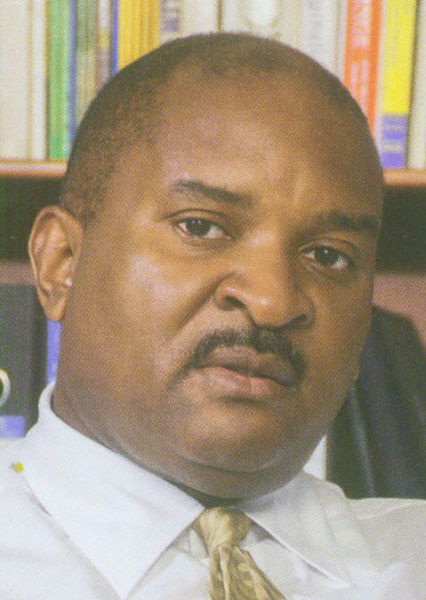Even with the Telecommunications Liberalization Bill passed in Parliament, CEO of BrainStreet Lance Hinds said that a tougher road is ahead in getting a fully liberalized ICT sector.
Speaking at an ICT discussion yesterday in the Conference Room of the National Library, Hinds said the ICT sector would not move forward unless an “enabling environment” is created. “If you don’t build that kind of enabling environment then it’s going to be difficult in moving forward the way we would want to,” Hinds said.
“In 1990 the government signed a … exclusive agreement with Atlantic Tele Network and that is how GTT was created. The first exclusive licence was for 20 years with an option of automatic renewal for an additional 15 years in 2010… It came and the government did not intervene, so therefore it was extended for 15 years,” Hinds said, pointing out that the work that was done on liberalization from 2012 to 2013 in Parliament, through special committees resulted in the bill being passed last month.

However, he said the passing of the bill was only the first stage in achieving a free and fair telecommunications sector. “We now have the first stage of the movement or the framework towards telecommunications liberalization. This is where the hard work starts,” he added, emphasizing that while it is the general opinion that once the bill is passed there will be full liberalization, it is not so.
However, the intention is to open the floor to an influx of companies to enter the sector and provide all kinds of services.
Hinds explained that the most important and looming issue right now surrounds engaging GTT with discussions. “We are now asking for them to give up nine years of their licence so you have to have a discussion in terms of how you are going to liberalize. The value of those nine years, things they would like to see in the new licence and then on the government and public side we would have to see provisions that would benefit us,” Hinds said, adding that everyone will be starting in a new liberalized environment with new licences.
While the discussions have not started as yet, Hinds said he is optimistic that they will begin next month and conclude by the end of October, given that there are no peculiarities and difficulties.
Hinds highlighted the regulations that will govern the sector as another important part and pointed out that there will be several sections: the licence and frequency authorizations, interconnection and access, pricing, universal access, competition regulations and spectrum management regulations. While there is currently the National Frequency Management Unit, Hinds pointed out that it will have to become a new telecommunications agency.
He asserted that the new telecommunications authority has to be in effect by the time they are ready to go “live” and have the legislation in effect. “They are the ones that will have to process licences and will have to do analysis to make sure that whatever companies are applying meet the criteria. It must and has to be ready,” he said, adding that it is critical that the agency is created.
“This means that you can get new players in the market and we can hope for all manners of ICT things,” he said.









